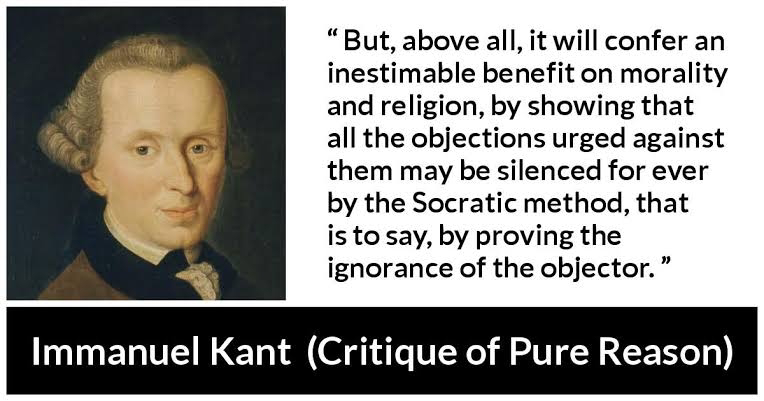Transcendental idealism: Kant's Philosophy
Immanuel Kant (1724–1804) is the central figure in modern philosophy. He synthesized early modern rationalism and empiricism, set the terms for much of nineteenth and twentieth-century philosophy, and continues to exercise a significant influence today in metaphysics, epistemology, ethics, political philosophy, aesthetics, and other fields.
Transcendental Idealism
Kant introduces transcendental idealism in the part of the Critique called the Transcendental Aesthetic, and scholars generally agree that for Kant transcendental idealism encompasses at least the following claims:
- In some sense, human beings experience only appearances, not things in themselves.
- Space and time are not things in themselves, or determinations of things in themselves that would remain if one abstracted from all subjective conditions of human intuition.
- Space and time are nothing other than the subjective forms of human sensible intuition.
- Space and time are empirically real, which means that “everything that can come before us externally as an object” is in both space and time and that our internal intuitions of ourselves are in time.
Kant's Philosophy
Kant's most original contribution to philosophy was the idea that it is the representation that makes the object possible, rather than the object that
makes the representation possible.
This introduced the human mind as an active originator of experience rather than just a passive recipient of perception and placed the role of the human subject or knower at the centre of inquiry into our knowledge.
Why does Kant reject Metaphysics?
More specifically, Kant’s criticism of the metaphysical disciplines centres on his efforts to show that the ideas of reason (the soul, the world and God), which are thought by the demand for an unconditioned that could unify the relevant domain of conditions, get erroneously hypostatized by reason, or thought as mind-independent “objects” about which we might seek knowledge. In the same way, that is, that the prescription to seek the unconditioned appears to reason as an objective principle, so too, the subjective ideas appear to reason as objects existing in a mind-independent way. Kant aims to secure the subjective ideas while enforcing their subjective status, and thereby defusing the metaphysics that attends to them.
What is "modernity" according to Kant?
Kant says that the nature and content of modernization depend on how we define enlightenment. Kant's definition reads as under Enlightenment is man's release from his self-incurred tutelage and his courage to use his reason. Thus, for Kant, the motto of enlightenment is one's reason.
Thanks,
Ashish Raja






Comments
Post a Comment